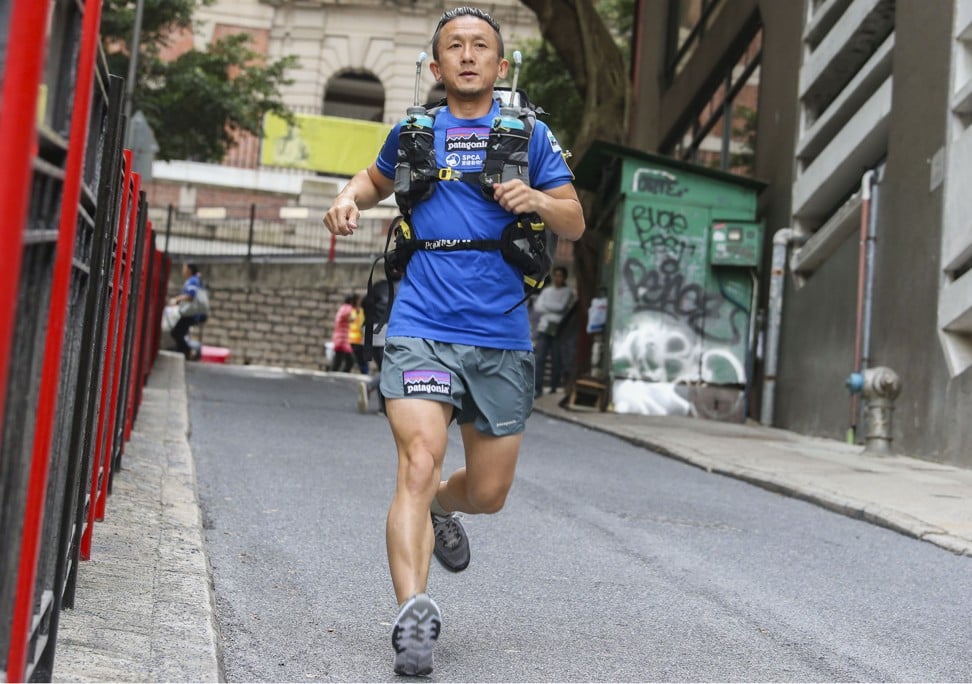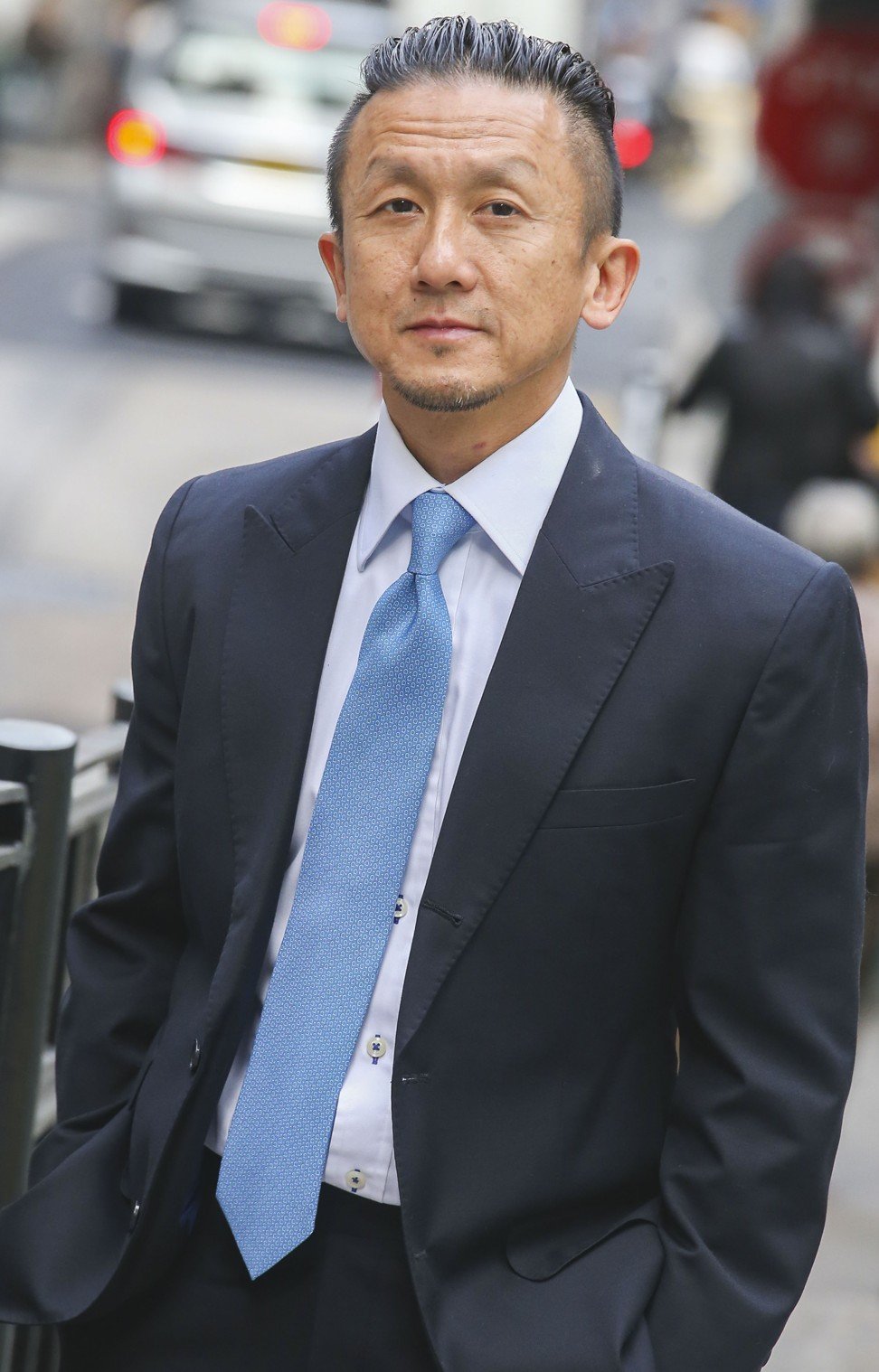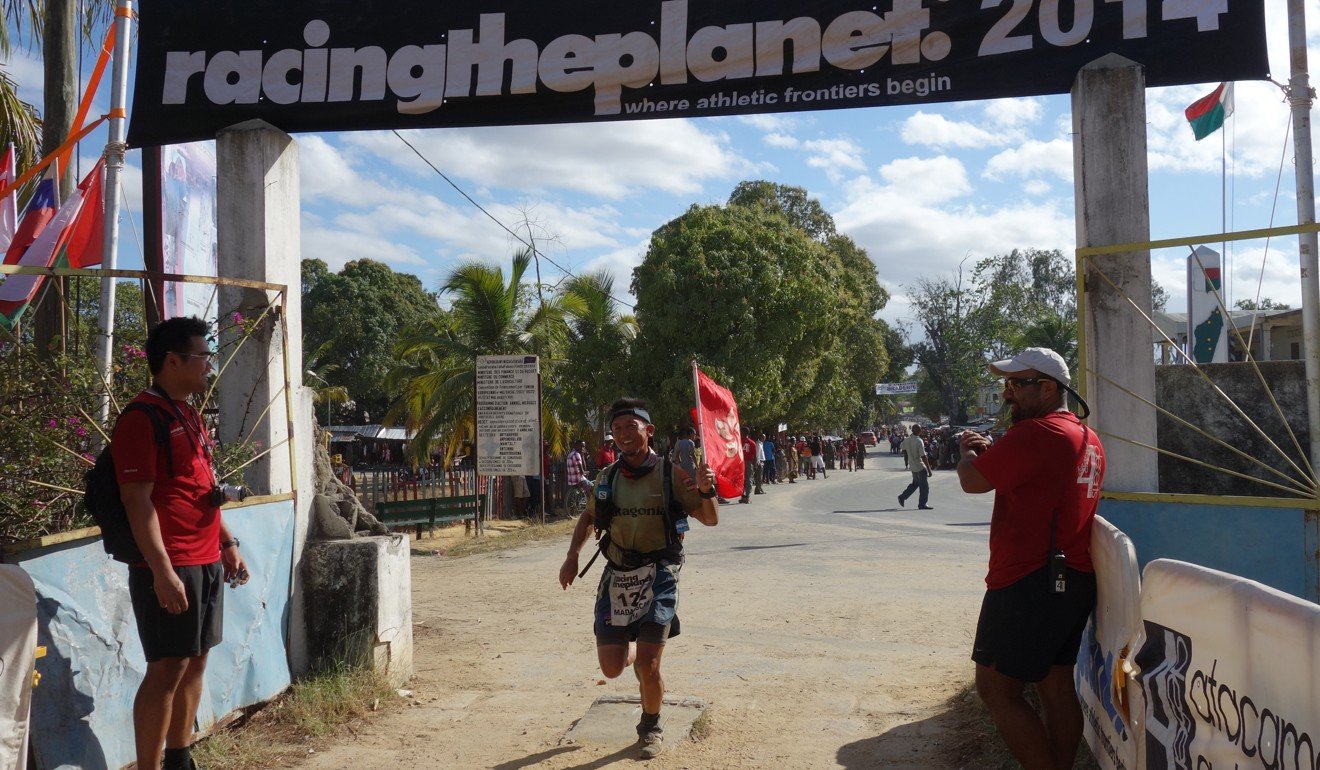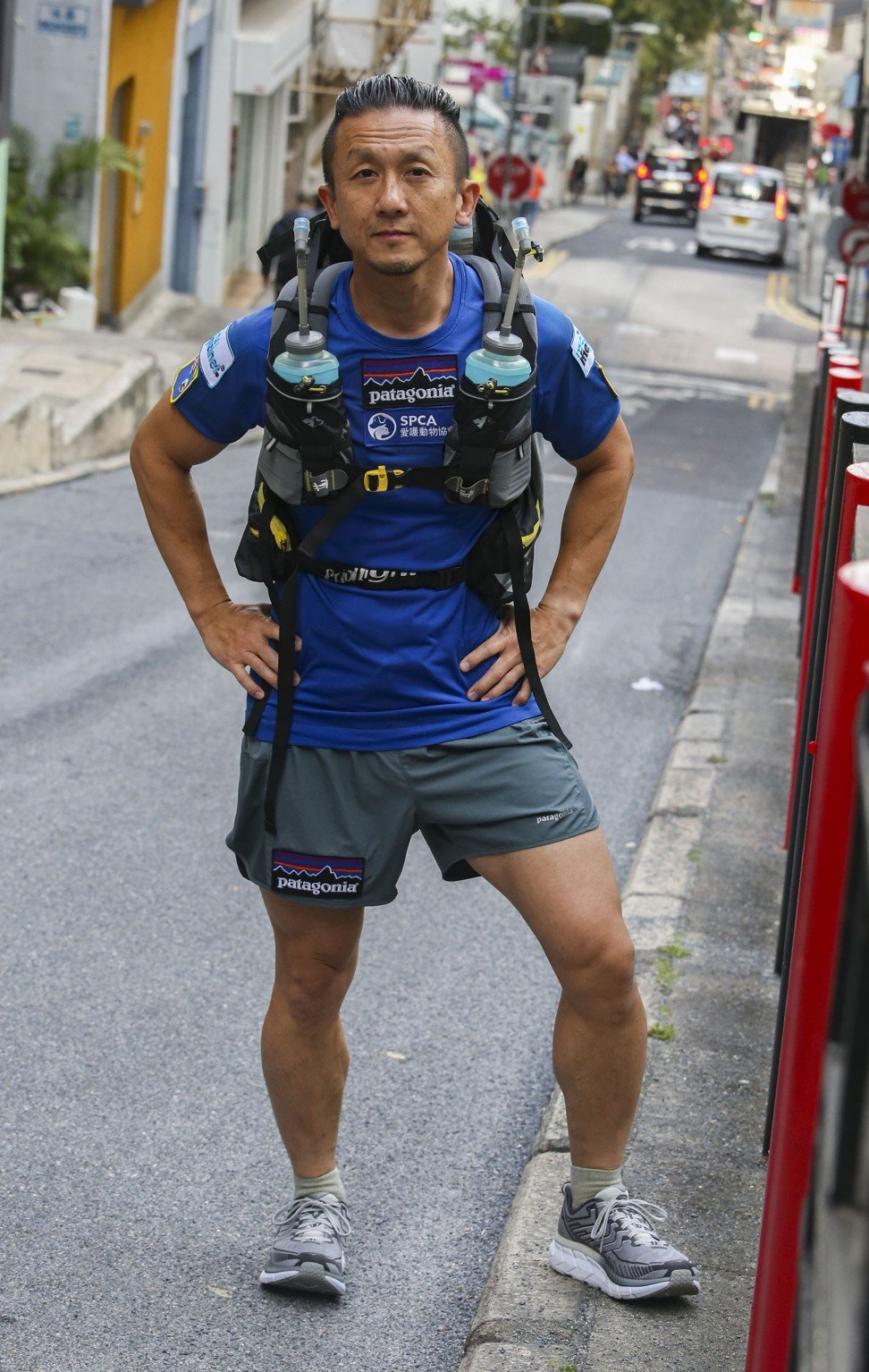
Hong Kong ultrarunner on how he stays motivated in middle age, even while raising a young family, and his seven tips for endurance
Derek Kwik has run an ultra-marathon every year since 2000, but despite approaching 50 years old and being a father of one-year-old twin girls, he plans to keep going. He gives his advice on how to juggle exercise and family

Ultra-running by its very nature takes hours, and even days, of training. But when you are raising one-year-old twin girls, time is of the essence.
Hong Kong venture capitalist Derek Kwik has run a multi-day ultra-marathon every year since 2000. It all started with a 500km, 10-day race in Malaysia. Life has changed since: he is approaching 50 years of age and is now a father.
Despite his new responsibilities, Kwik has just returned from a 250km race in Patagonia. He can no longer spend hours out on the trails getting into shape for his annual race.
“It’s taught me to be more efficient with my time,” he said. “Babies have a schedule and they don’t wait for anyone. They wake up at this time, they eat at this time.”
However, his revised training schedule has not affected his condition, and ultimately he said he found the Patagonia race quite easy.

“I have my ‘mini-me’ which is what I call my bag of rice,” he said. “I run up and down The Twins [hills on Hong Kong Island] carrying it. In Patagonia, the highest peak was 700 metres, but The Peak here was 850 metres, so it was no problem for me.”
These trips up and down “The Twins” come at a price, though.
“Being a father has also taught me the art of negotiating with my wife,” Kwik said. “I say, ‘How can I help? What would you like me to do?, but if I do this, you have to let me go running tomorrow’.”

Kwik thinks his family benefits if he is able to go on his run, as it stops him becoming cranky, and when he returns he is completely committed to helping raise the little ones. He doesn’t hesitate to take over parenting duties and let his wife take the time she needs for her hobbies.
“We both need our time to decompress,” he said. As his girls grow up, Kwik hopes to influence them with hiking and camping. Hong Kong kids, he believes, often develop a sense of entitlement.
“I want them to know there are hard things out there they have to accomplish as well,” he said. “We are going camping: yes, you will get dirty, yes, you can go a day without showering and, yes, you can go to the bathroom in the bushes.”
Ultimately, when the twins are nearing the end of secondary school, he wants them to run a marathon with him. And then, when they are close to the end of university, Kwik wants them to run a multi-day ultra-marathon with him.
“I’ll be close to 70,” Kwik said, of the planned marathon. “They don’t have to like it, but they have to do it with me.”
He ran that first race in Malaysia, he said, “because people told me it couldn’t be done”. He and his friends had seen races like the 500km multi-day run that Kwik signed up for, but believed they were only for extreme athletes. When Kwik completed the run, his friends were still unimpressed and put his success down to luck.
It’s taught me to be more efficient with my time. Babies have a schedule and they don’t wait for anyone. They wake up at this time, they eat at this time
“My blood boiled. I’d risked my life and slogged it through the jungles and not even a pat on the back? So, next year, I did the snow mountains in New Zealand,” he said.
After that, his friends began to realise that Kwik backs up his talk.
“It isn’t so much inspiring them to do the act of running, but inspiring them to follow through once they have made a verbal commitment,” Kwik said. “Half of it is the intent, but 50 per cent is the action.”
Now, if he hears one of his friends say they will do something, like setting up a restaurant, if the next conversation is ‘I’ve been busy’ instead of ‘I’m looking into menus’, he calls them out.
Kwik thinks the word “fit” should never be used in the same sentence as “healthy” when describing him.
“I live on junk food, I literally eat bags of candy and drink three or four sodas a day. Ice cream, soda, cookies. I ate three bags of candy a day in Patagonia,” he said. “To me, it’s not the power bar that gets you to the next check point, it’s the jelly beans that you reward yourself with when you get there.”
And he needed all the motivation he could get in his most recent race in Patagonia. Although the elevation was not a problem for Kwik, the cold was. The weather was relatively good, and as a result the glacier run-off caused river levels to rise – rivers that Kwik had to cross.
“If you keep moving, your body stays warm, but when you get out of the water that first five minutes is hard,” he said. “Your legs are frozen, and the wind on your wet legs means you get that evaporation effect. It’s very cold.”
Kwik would face the oncoming stream so the pressure would not buckle the back of his knees. “It’s almost like a crab, moving from one side to the other sideways,” he said.
For next year’s race, he will avoid the cold and head to Spain, where the cuisine of small savoury dishes will draw him to the checkpoints. “Every night you get to have tapas.”

Kwik’s top seven endurance tips
1. Multi-day endurance events are about getting comfortable with being uncomfortable.
2. Ultra-marathons are not a game of speed. I do not outrun. I outlast. Slow is steady. Steady is quick. Quick is fast. I put one foot in front of the other until it is done.
3. Lead by example. As with anything in life, success is derived by training or some type of repetitive activity to create a pattern in the actual experience. There is nothing more valuable than being a domain expert and then sharing that knowledge so that others may benefit.
4. Pain is a fantastic learning tool. I absolutely love physical discomfort. I have completed the last 80km of the Hong Kong Trailwalker on a sprained ankle and finished a full marathon and multi-day ultra-marathon on a torn hamstring. The more pain I learn to endure, the stronger I become. Pain brings us outside our comfort zone where we can improve.
5. You will never find a power bar in my food supplies. Nothing could be more boring to the palate. Try eating power bars every day for an entire week while running an ultra-marathon. If you don’t eat it, you will have no energy. If you have no energy, you can’t finish the race. I only bring comfort food – jelly beans, beef jerky, potato chips, chocolate cookies, prosciutto, milk tea, Milo, miso soup and even a small bottle of truffle oil. Food is a morale booster.

6. The easiest thing anyone can do is quit. Quitting involves no skill whatsoever. I always consider the consequences of quitting – having to tell everyone that I failed at something. The natural response is regret, then comes the need for redemption. Unfortunately, redemption comes much later.
7. Recovery is about calorie replenishment and catching up on sleep. While running an ultra-marathon, I can lose a pound [0.45kg] a day. In the weeks after a race, I eat as much as I can. Sleep is my friend. I try to sleep as much as I can on the plane ride home so that when I land in Hong Kong, I can go straight back to work.